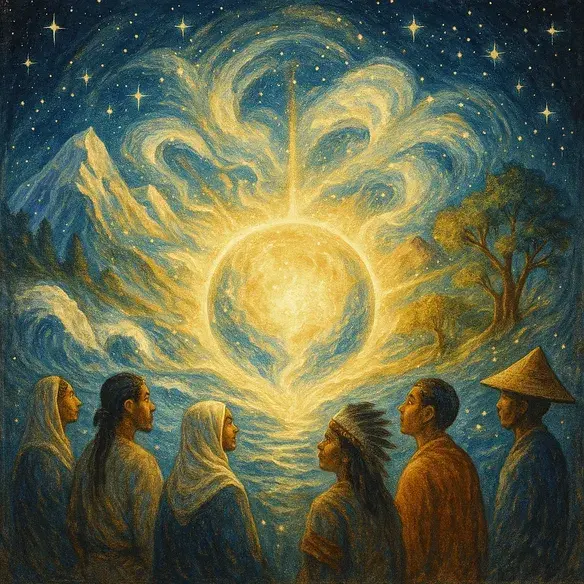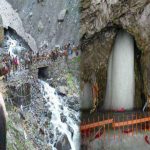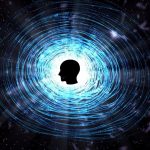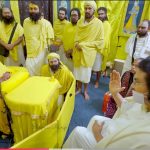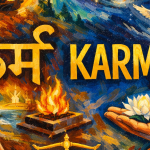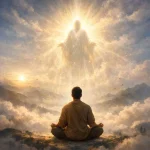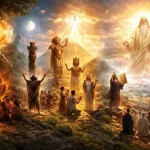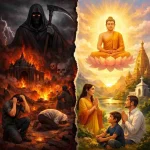How Different Faiths Interpret the “Creation” Story
The question of how the universe began has fascinated humanity since the dawn of time. Every civilization, every faith, and every culture has tried to answer the same mystery: Where did we come from, and why are we here? The “Creation” story—how life, earth, and the cosmos came into being—is one of the most universal narratives in human history. Though religions differ in their explanations, all share a deep wonder for existence and the belief that creation is not random, but meaningful.
The Universal Quest for Origins
Before science offered cosmological theories like the Big Bang, ancient people turned to divine stories to understand the beginning of everything. These stories were not merely myths—they were ways to express profound truths about life, morality, and purpose. Whether spoken in temples, inscribed in sacred texts, or passed through oral traditions, creation stories served to connect humans with the divine source of existence.
Even today, in an age of space telescopes and genetic discovery, the idea of creation continues to inspire spiritual reflection. Science explains how the world came to be, but faith seeks to answer why.
The Judeo-Christian View: Creation by Divine Word
In the Judeo-Christian tradition, the Book of Genesis describes creation as the work of one supreme God who brought order out of chaos. In six days, God created the heavens, the earth, the seas, the stars, and all living beings—and on the seventh day, He rested. Each act of creation is declared “good,” showing that the world is not a random accident but a reflection of divine perfection.
This narrative highlights moral responsibility: humans, made in God’s image, are caretakers of creation. The story also symbolizes balance—work and rest, light and darkness, matter and spirit—all coexisting in divine harmony. For Christians, creation is not only a past event but an ongoing relationship between God and humanity through faith and stewardship.
The Islamic Perspective: Creation as a Sign of God’s Power
In Islam, the Qur’an offers a similar but distinct understanding. Allah is described as the Creator (Al-Khaliq), who made the universe with wisdom and purpose. The heavens, the earth, and all living beings were created from water, dust, and divine command—“Be, and it is.” The Qur’an presents creation as a continuous process, with every element of nature serving as a sign (ayah) of God’s greatness.
Humans are formed from clay and given a soul by divine breath, symbolizing both physical and spiritual dimensions. The purpose of creation, according to Islam, is not merely existence but worship—to recognize the Creator through reflection and gratitude. The world is seen as a sacred trust (amanah), emphasizing ecological and moral responsibility.
The Hindu Understanding: Cycles of Creation and Dissolution
In Hinduism, creation is not a one-time event but an eternal cycle of birth, preservation, and dissolution—known as Srishti, Sthiti, and Pralaya. Unlike linear narratives, Hindu cosmology envisions the universe as constantly evolving and dissolving, like the rhythm of breathing.
The Rig Veda’s Nasadiya Sukta (Hymn of Creation) presents a poetic mystery, asking: “Who really knows how creation happened?” This humility before the unknown makes the Hindu creation story deeply philosophical. The gods themselves emerge from a higher cosmic source—the Brahman, the ultimate reality beyond time and form.
Later texts describe Brahma as the creator, Vishnu as the preserver, and Shiva as the transformer—together symbolizing the ongoing cycle of existence. The Hindu view sees creation as divine play (Lila), where the universe unfolds like a cosmic drama of consciousness.
The Buddhist View: Creation without a Creator
In Buddhism, there is no single Creator deity. Instead, the universe is understood through the principle of dependent origination—that all phenomena arise from causes and conditions. The Buddha did not focus on how the world began, but on how suffering arises and how it can end.
Creation, in this sense, is not a divine act but a continuous process of birth, death, and rebirth (samsara). Every being and every universe arises, evolves, and dissolves according to karmic forces. Rather than a story of divine will, Buddhism presents creation as an expression of impermanence and interconnection.
Indigenous and Other Worldviews: Creation through Nature
Many indigenous traditions around the world see creation as a sacred partnership between humanity and nature. In Native American, African, and Aboriginal cosmologies, the earth is alive, and creation is ongoing. The world was born not only through divine power but through the cooperation of natural spirits, ancestors, and elements like earth, wind, water, and fire.
These stories often emphasize gratitude, respect, and ecological harmony—values now being rediscovered in modern sustainability movements. Creation is not something that happened long ago but something that continues every day through balance and reciprocity.
Modern Reflections: Faith Meets Science
Today, the dialogue between creation and evolution, between faith and science, continues to shape global thought. The scientific view of the Big Bang and natural evolution does not necessarily oppose spiritual understanding. Many thinkers see science as explaining the mechanics of creation, while religion explores its meaning.
For example, the Big Bang’s mysterious origin aligns with the ancient recognition of a cosmic source—whether called God, Brahman, or the Void. Both perspectives, when seen together, reveal the majesty of existence: a universe that is vast, ordered, and alive with purpose. Across faiths and philosophies, the story of creation expresses a shared human longing to understand existence. Whether told as divine command, cosmic play, or natural unfolding, creation represents the ultimate mystery that binds all beings together.
While details differ, the moral message is universal: the world is sacred, life has purpose, and humanity carries the responsibility to protect and cherish creation. The ancient stories remind us that we are not separate from the universe—we are part of its unfolding, participants in the eternal act of creation itself.
In every faith and every heart, creation continues—not just at the beginning of time, but in every act of awareness, compassion, and wonder.
~Religion World Bureau

